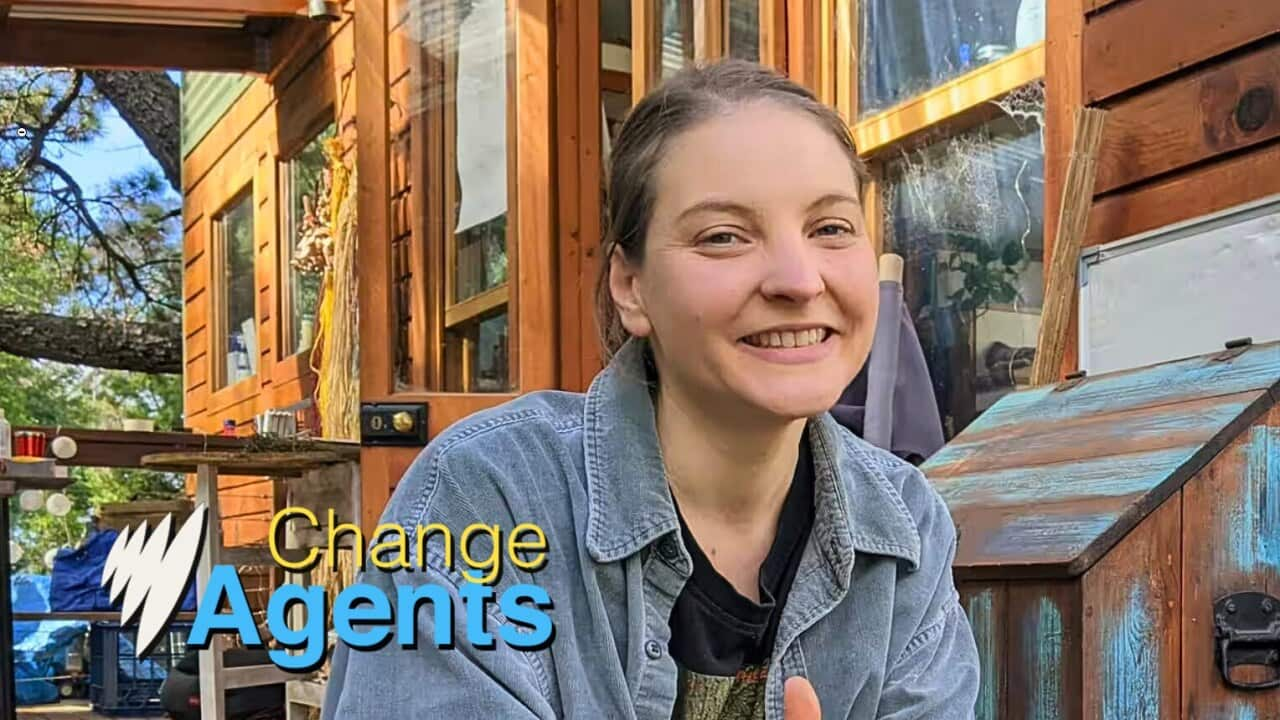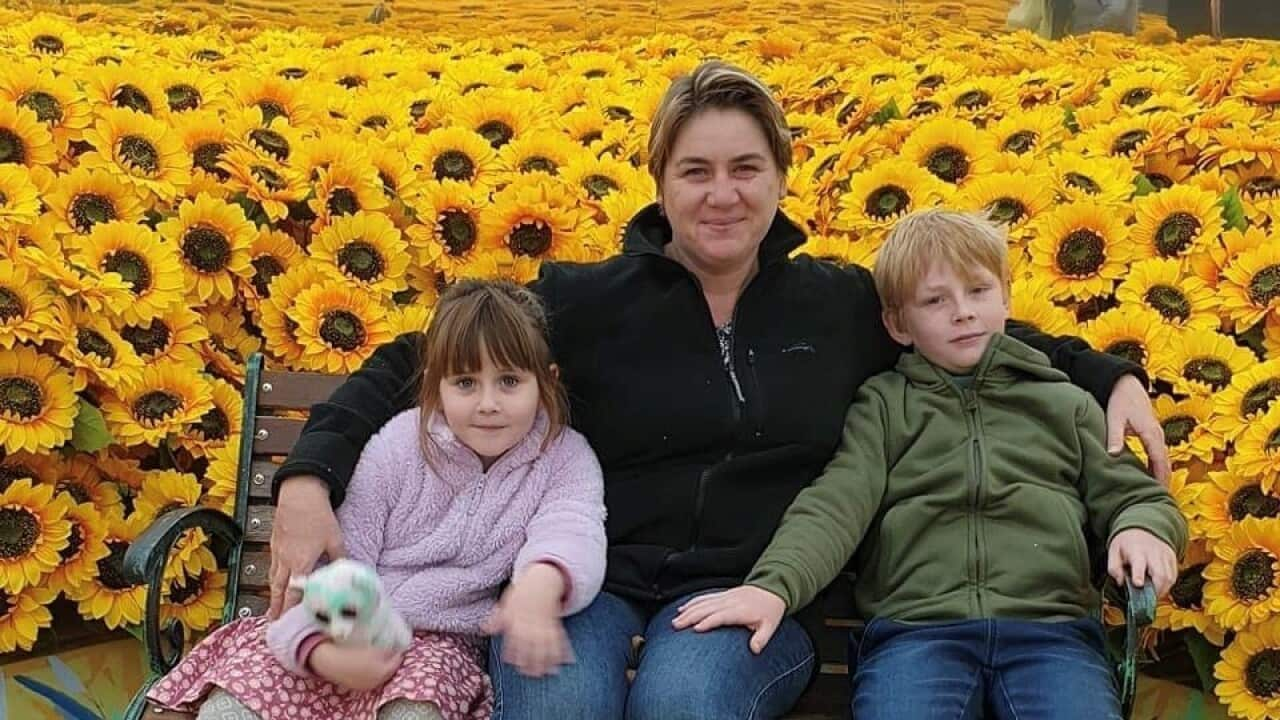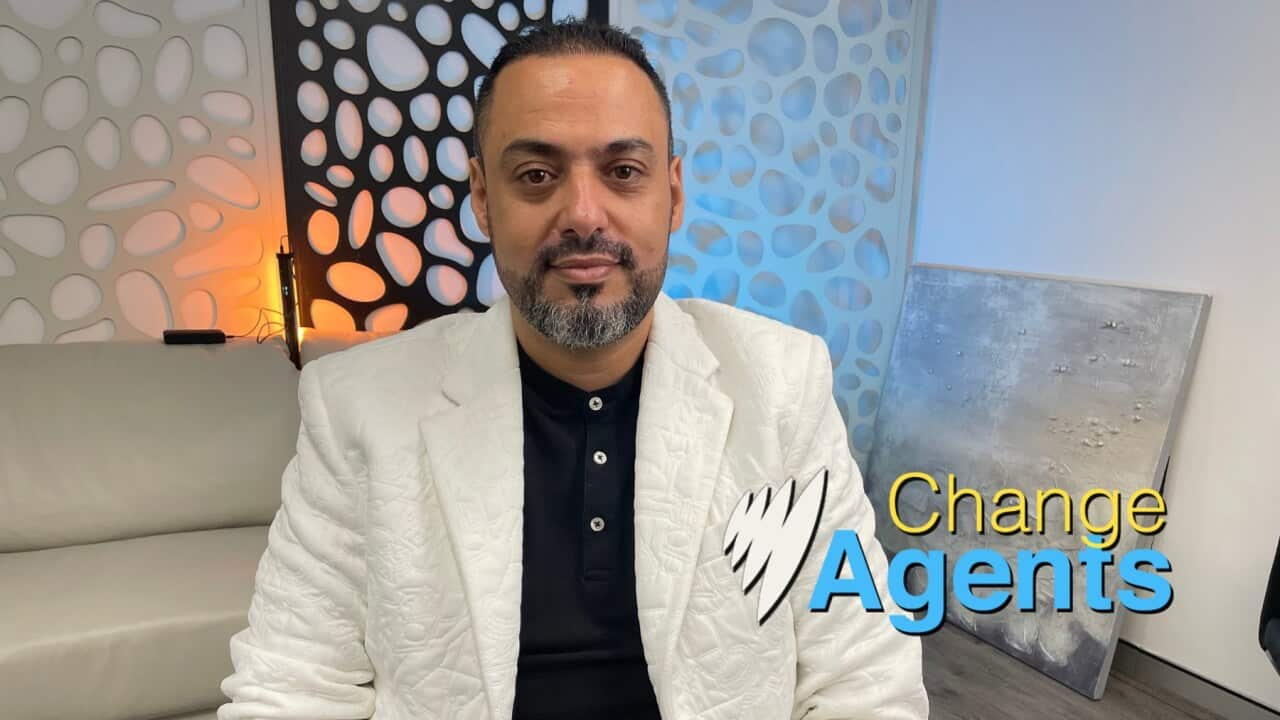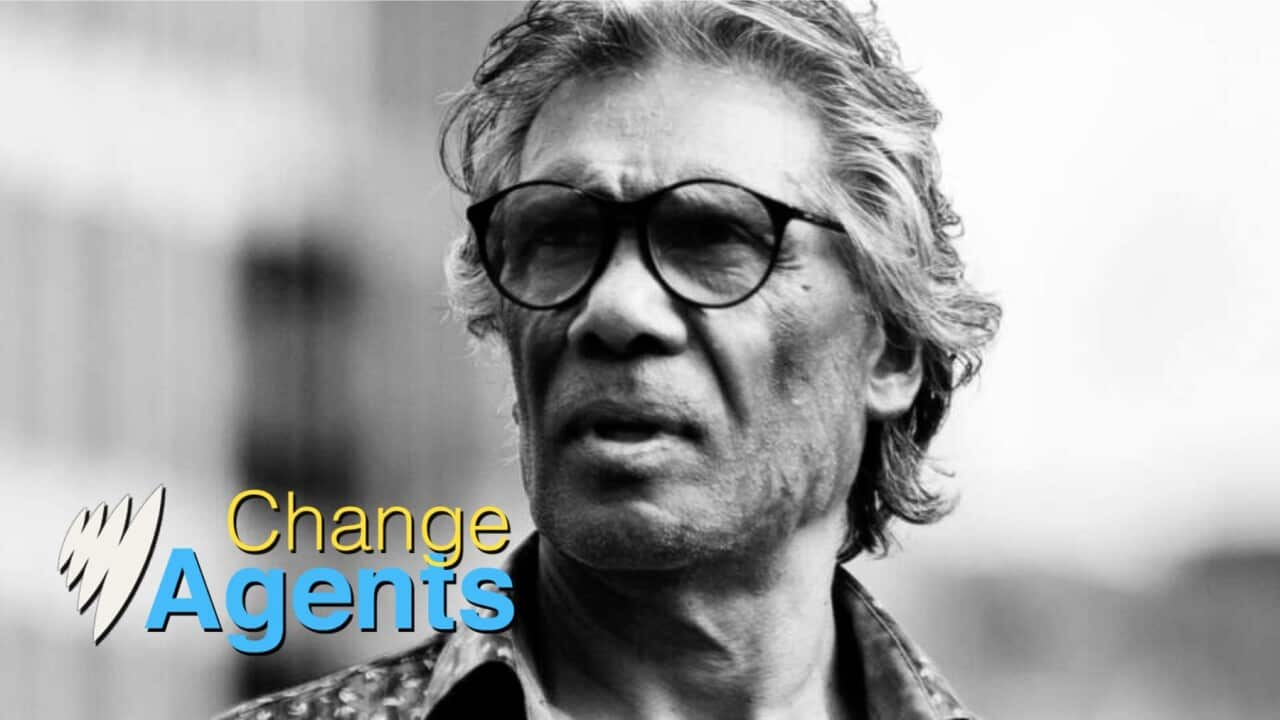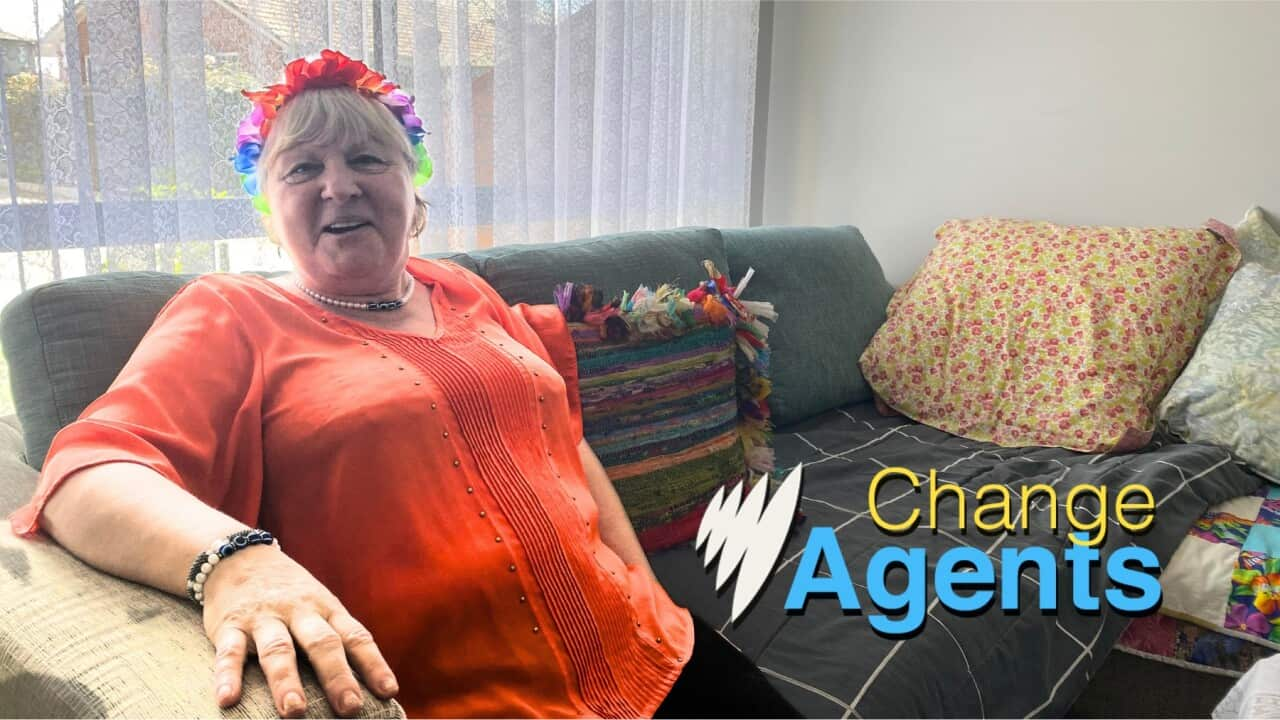TRANSCRIPT
In the Blue Mountains, a 90-minute drive west of Sydney, a group is taking a break from tending vegetables.
In summer it's cucumbers, tomatoes, beans and other greens, while the winter harvest includes cauliflower, broccoli, kale, radishes and snow peas - all cultivated by local volunteers.
Manu Prigioni is leading the group.
“Socially connected growing is a type of food growing that doesn't involve, just one person doing the entirety of the work of market gardening. So we have volunteer sessions every week on a different plot of ours and anyone from the community can come and help us in our plot on one of our plots. And we find that people, the people who come are vastly different ages and cultural backgrounds and genders and you and it's just a brilliant way to connect people socially around food growing.]]
Manu started the project called Farm it Forward four years ago.
Since then, volunteers have cultivated 26 tonnes of produce – despite severe droughts, bush fires and the COVID-19 pandemic.
“It's really about bringing vegetable, growing back to our towns and cities and the suburban and peri-urban landscapes that we have. We have about 10,800 acres of lawn in Australia and if we could use that to provide food for humans instead of lawn that doesn't really even provide habitat for animals then we'd be in a better place in terms of food security.”
Landowners who 'gift' part of their property for food growing are chosen because they are at risk of social isolation, which includes families with young children and older, retired residents.
Among them is 79-year-old former nurse, Sylvia May.
“Because I am on a big bush block, and many of my friends were retiring and downsizing. But I prefer to stay here on my land. Without Farm it Forward, most of my social contact would be with people my own age. It is lovely to mix with people of different ages. Mixing with people of different ages, which helps me feel like myself, not an old person. Plus, having a vegetable garden on site where I don't have to do the work myself, that is the most amazing luxury.”
Landowners like May get free food, and the rest is sold directly to the community, which helps to pay young people to tend to the market gardens.
It's a win-win scheme with other health benefits.
Research published in 2023 in the journal Nature Human Behaviour by Harbin Medical University in China, examined links between loneliness, social isolation and early death among more than 2 million adults.
The study found that people who experienced social isolation had a 32 per cent higher risk of dying early from any cause.
Dr Grant Blashki is the lead clinical adviser of the mental health service Beyond Blue.
As a GP, he says chronic loneliness is linked with other health issues, too.
“From the physical point of view, the studies tell us that loneliness is associated with a 30 per cent rise in heart disease and a 30 per cent rise in strokes, as well as premature death. That is right up there with smoking, obesity and physical inactivity. We also know that loneliness, and social isolation are also associated with higher mental health problems, things like depression, anxiety and very unfortunately higher suicide rates and dementia. So, we really do think that our minds really do need that social connection with other people.”
Manu started Farm it Forward following her own mental health struggles.
After growing up in northern Italy, Manu migrated to Australia aged 19 and says moving to the small semi-rural community from Sydney came as a shock.
She says she became very socially isolated, especially after the birth of her children experiencing a strong episode of post-natal depression, without the support of family - nearby.
Under her psychologist's guidance, Manu started growing food developing a passion for permaculture.
That connected her to other like-minded people.
Manu says in many ways the group has become an extended family for many of its members.
“When I was a young mum with two small children, I remember the thing that really, really helped the most was knowing that there are people out there who will easily bring a meal home, if I am in crisis or if I'm going through tough times or knowing that there's a good network of really lovely humans that I trust and love that will be there in a flash if there's anything that I need and vice versa. Maybe that there are unrelated aunties or uncles who that can provide health and guidance and support.”
According to the Australian Institute of Health and Welfare, social isolation is defined as a lack of contact with other people and can involve having a limited social network or living alone.
Loneliness, on the other hand, is an emotional state in response to having a lower level of social contact than desired.
While most people will experience loneliness at some point in their lives, those experiencing chronic loneliness, which extends over years, are most at risk of health impacts.
Dr Blashki says community projects like this are increasingly seen as one solution, by the medical profession.
“Doctors are being encouraged to provide what we call social prescriptions or social prescribing, where I write down on a piece of paper, like a script, and say it would be really good for you to join this community group. Or it would be great for you in the next couple of weeks to make a plan about friends you are going to catch up with or to volunteer, or for some people it would be a good idea to get a pet. Increasingly I think the medical profession understand that reengaging people with socialising can be a really important part of their management. “
Social prescribing' has been adopted into healthcare systems overseas.
Dr Blashki says social isolation peaked during COVID-19 pandemic lockdowns, but many people are still struggling to reconnect.
It was first integrated into national health policy in England, in 2019.
Volunteer Rafida is another volunteer with the group.
She helps cook meals with Farm it Forward - using unsold produce to make healthy and affordable meals.
For her, cooking is her way of sharing what she loves with the community.
“It's all about community connection, loving what you do, sharing. Everyone has their own, I suppose, gifts and talents but this brings us as a community together from different walks of life and we all trying to make a difference. But also harness what's changing in our world and especially our food. But deep down in my heart, you know, I can cook anything because I cook with love. So for me it's sharing the love.”
Manu wants to see local growing expand further into other communities.
“I'd like to see this type of initiative in each local area, if not in each suburb. Seriously It's incredible in terms of nipping public health issues in the bud to do with public health. It's strong in its small and meaningful scale. So, lots and lots of small and meaningful makes really, really powerful change.”
And you can listen to more episodes of the through the SBS listen app or wherever you get your podcasts.
